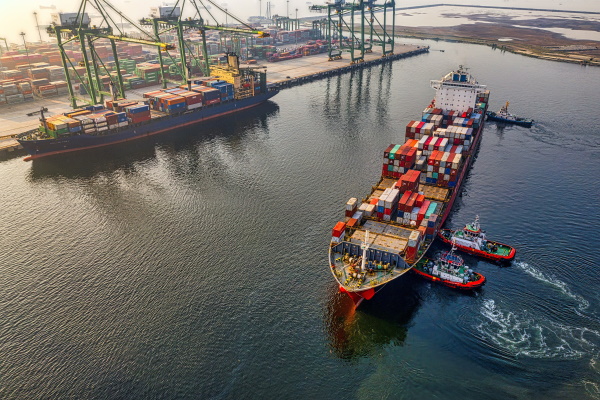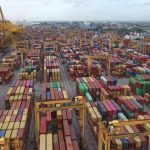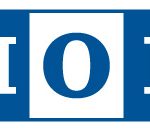As international sanctions come to the fore in global trade, research in the UK and Switzerland shows how compliance is undermined by a technology gap.
Conducted among more than 500 decision-makers, the research reveals that on the trade finance side, Swiss and UK banks are seriously short of compliance screening and monitoring capabilities, while on the shipping side, too few companies have technology to show they are compliant. The result for both sides is heightened risk and loss of business.
This is unfortunate to say the least. Because sanctions breaches are regarded as strict liability offences by the US Treasury Office of Foreign Assets Control, an inadvertent breach will result in penalties and negative headlines. Lack of awareness is no defence. Such breaches and their accompanying damage are inevitable unless organisations adopt more effective screening and monitoring technology to give them the end-to-end view of a transaction. This is what they need to conduct due diligence on the nature of the transaction and all parties involved.
More complex compliance because of the Ukraine war
The challenges of compliance have grown since the invasion of Ukraine, making Russia the subject to the highest number of sanctions in the world – 5,581. Numerous organisations or individuals have been designated by OFAC for breaching sanctions against Russia – a situation that will continue even after any end to the conflict. Meanwhile North Korea, Syria and Iran all remain under comprehensive sanctions. Venezuela and Cuba are also subject to stringent US restrictions. It is worth remembering these sanctions have teeth. In March this year the US sanctioned five entities for proliferation activities under the Iran, North Korea and Syria Nonproliferation Act, re-emphasising the need for continued vigilance.
OFAC’s stance, and that of other regulators that have fallen in line, has vastly elevated the importance of end-to-end due diligence and monitoring right across the financial and organisational ecosystem that supports each transaction and shipment. Although non-binding, OFAC’s 2020 maritime industry advisory brought financial institutions and insurers under the same requirements as ship owners, operators, managers, charterers, brokers, flags, ports, shippers, freight forwarders and commodity traders. In fact, almost anyone involved in a trade transaction. All were told to improve their compliance programmes to avoid breaching US sanctions, which means any organisation is now in danger of triggering investigations and penalties.
Weak compliance technology undermines business and increases risk
Despite this, the research found almost two-thirds of UK shipping organisations (65 per cent) and four-in-ten in Switzerland (39 per cent) unable to show sanctions compliance when banks asked them for it. The result is that exactly half of Swiss shipping organisations and 38 per cent in the UK admit they have lost business because through this failure to show compliance.
Much of this is down to the persistence of manual processes which eat up time, undermine efficiency and put organisations at risk through lack of transparency. Nearly half of the shipping companies in Switzerland (48 per cent) and 39 per cent in the UK say removing manual processes from their compliance procedures would make the biggest improvement to their ability to comply with sanctions and regulatory requirements.
Only 16 per cent of UK shipping companies and 22 per cent of their Swiss counterparts have sanctions compliance and monitoring technology they are prepared to describe as “excellent and fit for purpose”.
Compliance technology in trade finance
In the trade finance sector, the research found that although 87 per cent of organisations across the two countries have screening in place, many also lack critical capabilities. A third of banks in the UK and a quarter in Switzerland cannot gain insight into the risk profiles of carriers and vessels. More than a third overall admit their technology is simply inadequate. They face the challenges of using multi-point solutions, understanding and keeping pace with regulation and admit to being unsure what constitutes due diligence under current regulations.
There is however, some understanding of the capabilities required. Banks want to integrate enhanced vessel tracking into their compliance software to detect illicit activity and they seek greater accuracy and less false positives in vessel-tracking technology. Nearly half want their compliance software to give them the ability to detect fraudulent shipping documentation. Other capabilities required by financial organisations in both countries include predictive analysis of non-reporting vessels, satellite imagery and analysis of historic AIS gaps.
These are precisely the capabilities that financial institutions need in order to avoid costly and humiliating sanctions breaches. The problem with many of the survey results is that not enough trade finance companies or shippers fully grasp the urgency or necessity of having such technology to automate time-consuming processes so they can complete them rapidly, at scale with high levels of accuracy.
Press the button to upgrade sanctions compliance solutions
It is true that the research found that sanctions are taken very seriously. Every Swiss and almost every UK shipping company surveyed regards the OFAC 2020 maritime industry as having a high or medium level of impact on their organisation. But recognising the seriousness of sanctions is insufficient on its own.
Banks, finance platforms, carriers, owners, shippers, forwarders, importers and exporters all need far greater insight into who and what they are dealing with right the way along each transaction. They must drop paper-based methods where they use them and integrate a far greater range of capabilities into their compliance solutions. For an organisation dealing with thousands of transactions, technology is the only sure way to conduct due diligence to the standard required by regulators and just as importantly – to demonstrate that all due process has been meticulously followed.
Source: Hellenic Shipping News






